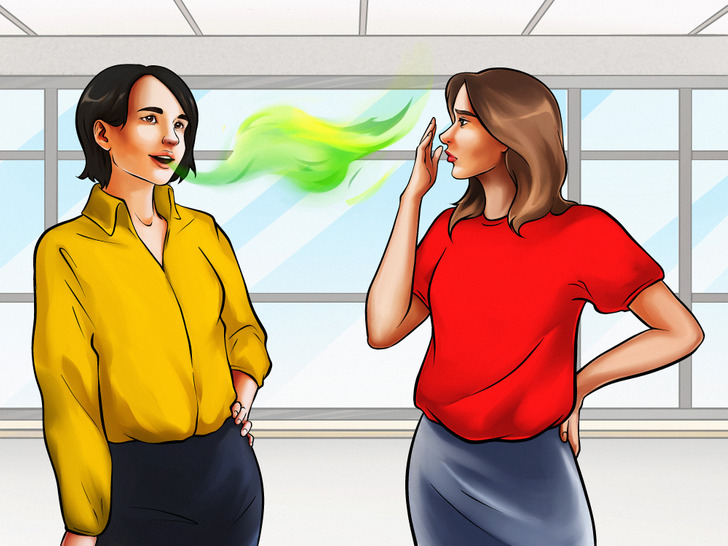CAUSES
1. Health issues, including disorders like dry mouth
When someone's mouth doesn't generate enough saliva, they have a dry mouth, or Xerostomia as it is known in the medical profession. Because of this, the food particles left inside their mouth are unable to be completely sucked out, and as a result, they become stuck and begin to decompose. However, other factors, such as certain drugs, mouth breathing, and diseases of the salivary glands, can also contribute to dry mouth.
Infections and inflammation that develop in our tonsils, nose, and mouth can also generate odor. Additionally, individuals with certain cancers, failing livers, and other metabolic illnesses may begin to have poor breath. That is because the medication they take produces a concoction of chemicals.
2. Not regularly flossing and cleaning your teeth
Since they get rid of the tiny food particles that become stuck in our mouths, these two actions are far more significant than we may imagine. In our mouths, these particles will accumulate and begin to decompose, which will produce an unpleasant stench. Additionally, if you don't frequently wash your teeth, plaque will build up and create gum irritation. Periodontitis is the name of the issue, and if left untreated, it can cause foul breath.
3. Consuming odorous meals and excessive spice
4. Quick-fix diets
In addition to being harmful and risky in general, crash dieting can also cause halitosis. This is possible because various diets, which are low in carbs, create energy at varying rates. A lot of ketones, which may be quite offensive-smelling, are produced when our body starts consuming all the protein to make energy.
TREATMENT
1. At least twice daily, wash your teeth and clean your mouth.
The first step is to have proper dental hygiene in general. It's advisable to floss once daily and clean your teeth at least twice a day. If you believe that your mouth requires more of these exercises, however, do so with caution because doing so might weaken your teeth. Remember to clean your tongue as well as change your toothbrush every two to three months.
Using mouthwash twice every day is another smart move. Choose a mouthwash with fluoride that is antibacterial or antiseptic that eliminates all the germs that cause gum disease and halitosis. If you have braces or dentures, be sure to clean your braces completely and take off your dentures at night.
2. Stick to gum after a meal rather than mints.
You'll have a greater fight against plaque acids if you chew gum because it's believed to increase saliva production. Saliva just keeps these acids at bay, however, they are what causes tooth decay and gum disease. Choose sugar-free gum if you can. Your mouth's bacteria love sugar and will use it to produce an acid that is bad for you.
3. To avoid having a dry mouth, drink lots of water.
In addition to having a dry mouth, as we have said before, this is one of the causes of foul breath in people. Make sure your mouth is always hydrated by drinking enough water throughout the day to help with that. Saliva production, which is important, will be aided as a result. Start consuming foods that require a lot of chewing, such as apples and carrots, since this will help you create more saliva.
4. You can experiment with several home cures.
Oranges have been shown to aid in the production of saliva, which helps to keep the mouth clean and free of bacteria. It has also been demonstrated that green tea has antibacterial and deodorizing qualities. You can begin consuming 1-2 cups daily, or you can brew them.
Oranges have been shown to aid in the production of saliva, which helps to keep the mouth clean and free of bacteria. It has also been demonstrated that green tea has antibacterial and deodorizing qualities. One to two cups can be consumed daily, or you can brew them the night before, chill them in the fridge, and bring them to work the next day.
5. Whenever visit a doctor
Your dentist will inform you whether you fall into one of the few categories when foul breath has nothing to do with dental care. When that happens, you might need to see an expert so they can identify the source of the issue and choose the most effective course of action. As we previously said, it's essential to rule out the chance that foul breath is caused by other underlying medical disorders.









